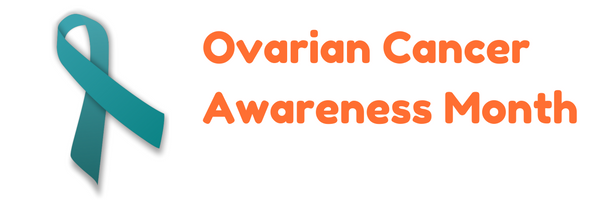It’s important to have regular women’s health exams namely a pelvic exam because it can find some reproductive systems at an early stage. When ovarian cancer is found early at a localized stage, about 94% of patients live longer than 5 years after diagnosis. About 20% of ovarian cancers are found at an early stage.
However, early stages of ovarian cancer often cause no symptoms. When ovarian cancer begins to cause symptoms, they can be misinterpreted to be caused by other things. These symptoms tend be persistent and can indicate that the cancer may have spread beyond the ovaries.
Symptoms For Ovarian Cancer Include
- – Abdominal or pelvic pain
- – Increased abdominal size or persistent bloating
- – Increased need to urinate or urgency
- – Feeling full after eating small amount
Despite that these symptoms can be likely caused by other conditions, if a woman experiences these symptoms in an unusual frequency, it is important that she should contact her doctor, preferably, a gynecologist.
Risk Factors to Consider
Age: Risk increases higher with age. It is rarely developed in women younger than 40 and half of all ovarian cancers are found in women 63 or older.
Reproductive History: Women, who have delivered at least one child, especially before age 30, are at a lower risk for developing the disease. The more children a woman has, the more her ovarian cancer risk declines. Women who breastfeed further reduce their risk.
Birth Control: Women who have used oral contraceptives have a lower risk. A lower risk can be seen the longer the pills are used and can continue for many years after the pill stopped.
Obesity: Women with a body mass index (BMI) of 30 or greater may have a higher risk of developing ovarian cancer.
Family history: Women with a mother, sister, grandmother or aunt who has had ovarian cancer have a higher risk of developing it.
Genetic mutations: Some women who develop ovarian cancer have an inherited mutation on one of two genes called breast cancer gene 1 (BRCA1) and breast cancer gene 2 (BRCA2). Women with the BRCA1 mutation, have a 35 to 70 percent higher risk of ovarian cancer. Women with the BRCA2 mutation have a 10 to 30 percent higher risk. However, the vast majority of women who are diagnosed with ovarian cancer don’t have either mutation. If you are concerned about this risk factor for ovarian cancer, you can discuss getting tested for both of the BRCA mutations with your OB-GYN.
To read more about ovarian cancer on The Clearity Portal, please click here.


